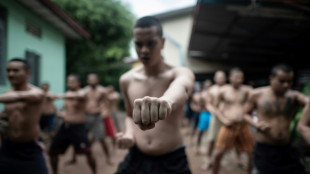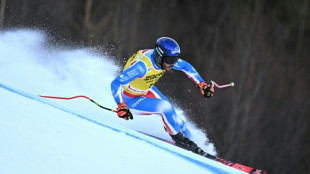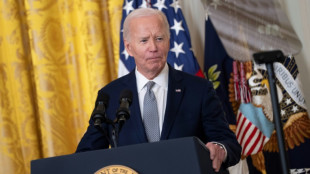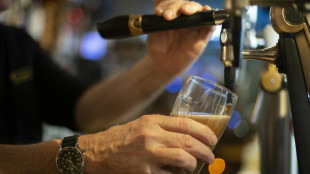

Disgraced surgeon defends windpipe transplants at Swedish trial
An Italian surgeon once hailed for pioneering windpipe surgery but now charged with assault told a Swedish court Thursday the experimental procedures were the result of "teamwork" and that he just wanted to save lives.
Paolo Macchiarini won praise in 2011 after claiming to have performed the world's first synthetic trachea transplants using stem cells, while he was a surgeon at Stockholm's Karolinska University Hospital.
The experimental procedure was hailed as a breakthrough in regenerative medicine.
But allegations soon emerged that the procedure had been carried out on at least one person who had not been critically ill at the time of the surgery.
Together with his colleagues, Macchiarini, 63, performed a total of eight such transplants between 2011 and 2014 -- three in Sweden in 2011 and 2012, and five in Russia.
The three patients in Sweden died, though the deaths have not been directly linked to the surgeries.
Last week, prosecutors spent three days arguing that the surgeries in Sweden constituted assault, or alternatively bodily harm due to negligence, as Macchiarini disregarded "science and proven experience."
The surgeon addressed the court for the first time on Thursday.
"I have been silent all these years, and it's because my lawyers said to do so. Because we believe that the only judgement that is right should come from a legal court," Macchiarini said in an opening statement.
- 'Not alone' -
Macchiarini insisted several times that the transplants were an alternative decided upon after all other options had been excluded -- what he referred to as a "Plan B".
Macchiarini's lawyer, Bjorn Hurtig, meanwhile insisted that the surgeries were the result of "teamwork" and had been discussed with other senior colleagues.
"Paolo Macchiarini was not alone in planning and making decisions," Hurtig told the court, presenting medical notes and references to conferences where the transplants were discussed.
Chief prosecutor Jim Westerberg told AFP on Wednesday he believed that Macchiarini had acted with "reckless intent", arguing that he had continued performing the surgeries even though complications arose with earlier ones.
Defence lawyer Hurtig pointed however to emails from Macchiarini to colleagues, where he stressed the serious nature of his patients' conditions and his desire to try and save their lives.
In one case, of a 37-year-old man from Eritrea studying in Iceland, other doctors had suggested treatments such as palliative care.
Hurtig presented an email where Macchiarini argued that "we should at least try to save the life of this student".
Hurtig also presented emails that appeared to show one patient's symptoms improving following the surgery.
Paolo Macchiarini "had but one intent, and that was to do good," the lawyer said.
In 2013, the Karolinska Hospital suspended all trachea transplants and refused to extend Macchiarini's contract as a surgeon.
A year later, several surgeons at the hospital filed a complaint alleging that Macchiarini had downplayed the risks of the procedure.
- Reopened investigation -
Macchiarini was also employed by the Karolinska Institute research facility, which awards the Nobel Medicine Prize. An external review in 2015 found Macchiarini guilty of research misconduct.
Even though the Institute sacked him in 2016, it repeatedly defended him until 2018, when its own review found him and several other researchers guilty of scientific misconduct.
The university's principal and several others stepped down over the scandal.
Medical journal The Lancet in 2018 retracted two papers authored by Macchiarini.
A criminal investigation was closed in 2017, only to be reopened in December of 2018 and charges were finally filed in September of 2020.
The trial, held in the Solna district court near the Karolinska Institute, is scheduled to conclude on May 23.
T.Zangari--IM




